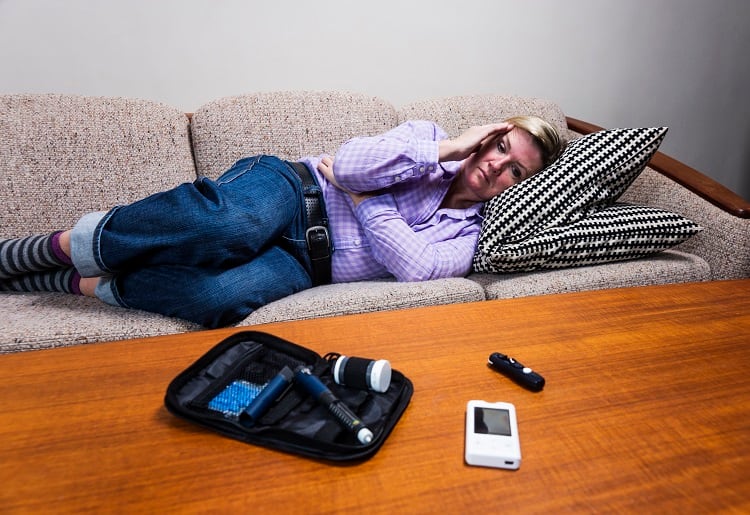The research, which will be presented at the Annual Meeting of the European Association for the Study of Diabetes (EASD), taking place from 2 to 6 October in Hamburg, Germany, presents major socioeconomic inequalities when it comes to individual risk from diabetes. The information was sourced from a poster abstract 750 at the meeting and no full paper has yet been published.
What is hypoglycaemia?
Hypoglycaemia is when blood sugar is too low (according to the UK’s National Health Service, below the level of 4mmol/L). Severe hypoglycaemia can lead to seizures, loss of consciousness, a coma or, in extreme cases, death.
Diabetics are at particular risk from hypoglycaemia, which is very rare in non-diabetics. In fact, severe hypoglycaemia can also rare in diabetics if they’re not taking insulin or secretagogues, which are both commonly prescribed to diabetics.
Severe hypoglycaemia often occurs as a side-effect of taking too much of these medications.
However, hypoglycaemia can also occur if you miss meals or don’t get enough food. This, the research suggests, is exacerbated by food insecurity.
Food insecurity and hypoglycaemia
While before this research, it was believed that a link between hypoglycaemia and food insecurity was likely, there was little research on the matter.
Until now. The present research, led by behavioural and social epidemiologist Dr Alexandria Ratzki-Leewing, looked at 1001 adults with either type 1 or type 2 diabetes, and analysed their hypoglycaemia risk over a period of 12 months. All the participants had been treated with insulin or secretagogues for at least a year.
Questionnaires captured the frequency of respondents experience of severe hypoglycaemia, which was defined as a level 3 low blood glucose concentration which altered one’s mental or physical state to the extent that it required professional or non-professional help.
Those who experienced food insecurity was defined as those who answered ‘yes’ to the question ‘within the past 12 months, did you ever cut the size of your meals or skip meals because there was not enough food?’ Around one in five participants answered this question with the affirmative, and around half of these experienced severe hypoglycaemia at some point over the course of the study’s 12 months.
The researchers found that, even when adjusting for age, annual gross household income, insurance coverage, living arrangements and diabetes type, those who experienced food insecurity still experienced hypoglycaemia 2.2 times as frequently as those who didn’t.
“We recommend clinicians use our screening question and exercise vigilance when managing individuals with food insecurity prescribed insulin or secretagogues,” said Dr. Ratzi-Leewing.
“Public health strategies to address food insecurity are also vital to prevent severe hypoglycaemia and its profound consequences.
“In the short term, severe hypoglycaemia can cause dangerous symptoms (such as seizures and coma) and accidents. It can also lead to impaired awareness of hypoglycaemia (the diminished ability to perceive falling blood glucose levels), which in turn, can increase the risk of future hypoglycaemia events.
“Long-term, severe hypoglycaemia has been associated with nerve and heart damage, as well as premature mortality. These effects have substantial direct and indirect economic costs.
“Ultimately, our study uncovers a key opportunity to reduce the burden of diabetes-related severe hypoglycaemia, while improving overall health. The results are timely given the (global) rising cost of living.”




